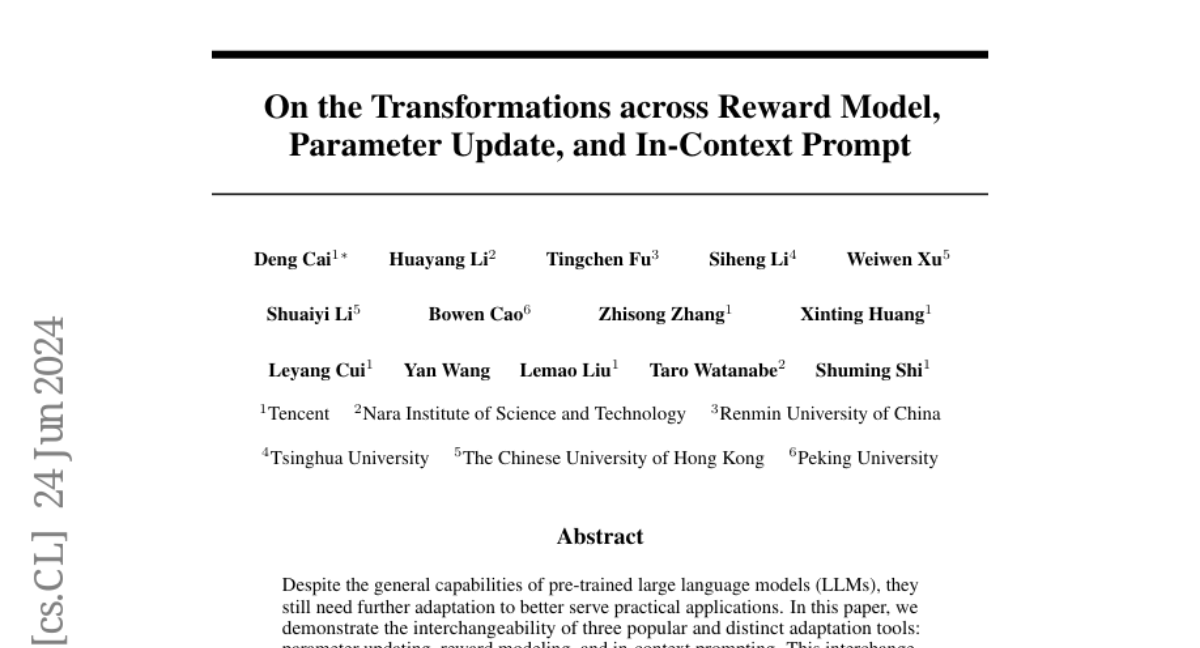On the Transformations across Reward Model, Parameter Update, and In-Context Prompt
Deng Cai, Huayang Li, Tingchen Fu, Siheng Li, Weiwen Xu, Shuaiyi Li, Bowen Cao, Zhisong Zhang, Xinting Huang, Leyang Cui, Yan Wang, Lemao Liu, Taro Watanabe, Shuming Shi
2024-06-26

Summary
This paper discusses how large language models (LLMs) can be improved for practical use by adapting them through three main methods: parameter updating, reward modeling, and in-context prompting. It shows how these methods can be interchanged to enhance the models' capabilities.
What's the problem?
Even though LLMs are powerful and can understand and generate text, they often need further adjustments to work effectively in real-world applications. Traditional methods of adapting these models can be limited, and there hasn't been a clear understanding of how different adaptation techniques relate to each other.
What's the solution?
The authors propose a new framework that illustrates how parameter updating, reward modeling, and in-context prompting can be used interchangeably. They describe six different ways these methods can transform the model's behavior, which allows for more flexibility in improving LLMs. This framework helps unify various existing studies on LLM adaptations and provides guidance for future research.
Why it matters?
This research is important because it offers a clearer understanding of how to enhance LLMs for practical applications. By showing that different adaptation methods can work together, it opens up new possibilities for developing more effective AI systems that can better meet user needs in various fields.
Abstract
Despite the general capabilities of pre-trained large language models (LLMs), they still need further adaptation to better serve practical applications. In this paper, we demonstrate the interchangeability of three popular and distinct adaptation tools: parameter updating, reward modeling, and in-context prompting. This interchangeability establishes a triangular framework with six transformation directions, each of which facilitates a variety of applications. Our work offers a holistic view that unifies numerous existing studies and suggests potential research directions. We envision our work as a useful roadmap for future research on LLMs.